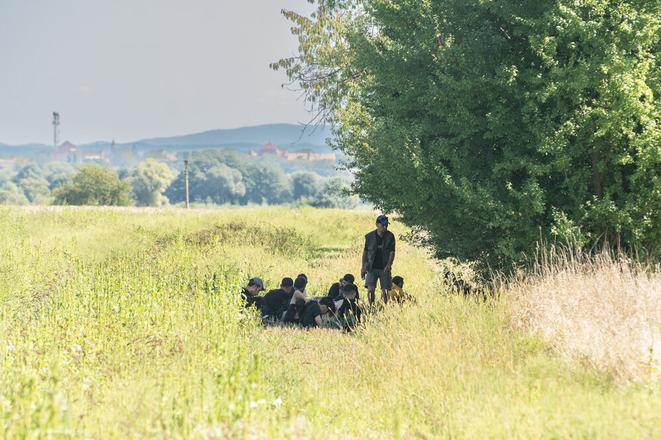Welcome to your weekly commentary and overview of news from Slovakia. Migrants and LGBT+ references make the campaign rather as we expected. In this country, winning can really mean losing. Court cancels a fine for a man convicted of spying for Russia.
If you have a suggestion on how to make this overview better, let me know at michaela.terenzani@spectator.sk.
Back to some tested and proven “enemies”
“It is going to be like Paris here soon, and you know at least ten people died there, or more,” said a lady sitting across the aisle from me on the train last Tuesday to her fellow pensioner, apparently heading for a trip to Bratislava with their club, whose members filled the better part of the carriage. Her remark, accompanied by a deep sigh, was confusing enough at first to stir my attention, and it quickly became clear it was a somewhat mangled reference to the 2015 terrorist attacks. She was talking about migrants.
Parties in Slovakia have three weeks left before voters head to polls to decide who will govern the country from this autumn. After the first days of school, parents are finding out that many schools have to resort to “creative” solutions to make up for a lack of teaching staff. Paediatric emergency rooms are understaffed, and some are being forced to close. The election sees Slovakia at a perilous crossroads in foreign policy.
But the country spent much of last week talking mostly about migrants and LGBTI people.
Campaigning about migrants – again
Migration is not an issue in Slovakia the way it is in some other European countries, partly because Slovakia is what experts call a transit country. In practice, that means that people who have crossed the Mediterranean (or Turkey) only pass through this country on their way to Germany or elsewhere in western Europe; few even consider the possibility of staying in Slovakia.
Groups of people can now be spotted more often than in the past, making their way through mainly southern Slovakia. Migration experts say this is because the routes these people follow have shifted and now also lead through Slovakia’s territory. Migration Office director Ján Orlovský admits it is unusual and can be worrying for locals when suddenly they see more strangers passing on foot through their villages and towns. This year, Slovak authorities recorded some 25,000 people crossing the border illegally, which is steeply up from the approximately 2,500 per year in the years prior to 2021. “But when we say we have a migration crisis here, we make our neighbours laugh, including Hungary, which had 270,000 illegal border crossings last year. Austria had 108,000 asylum requests; we only had 504,” Orlovský told the Sme daily.
A state of emergency has been declared in the Veľký Krtíš district, where the authorities have set up a makeshift centre to handle people who cross the border. There, the Foreigners’ Police checks on them and issues them with a document that allows them to move freely in Slovakia. They are usually gone within 48 hours, according to Orlovský.


